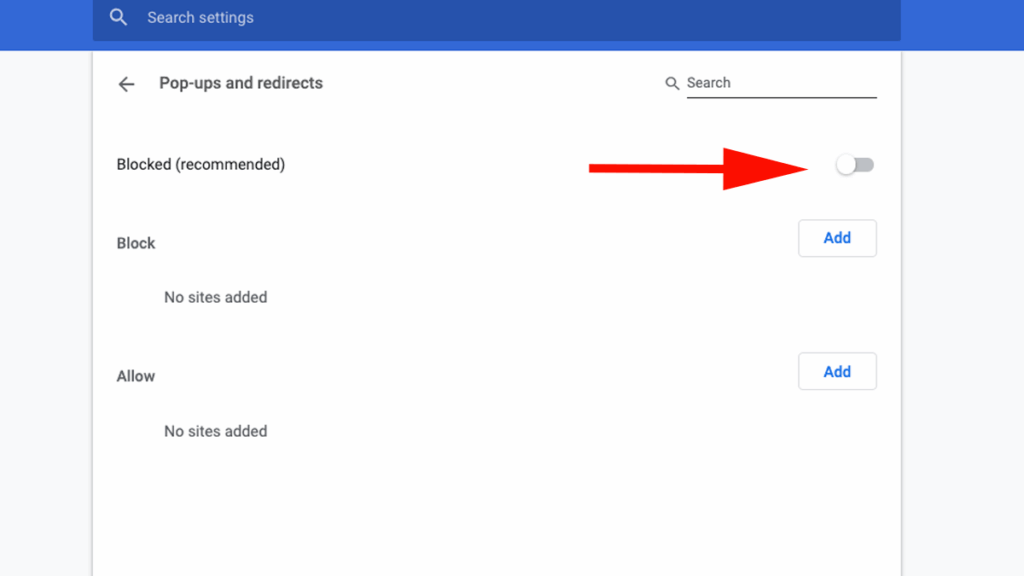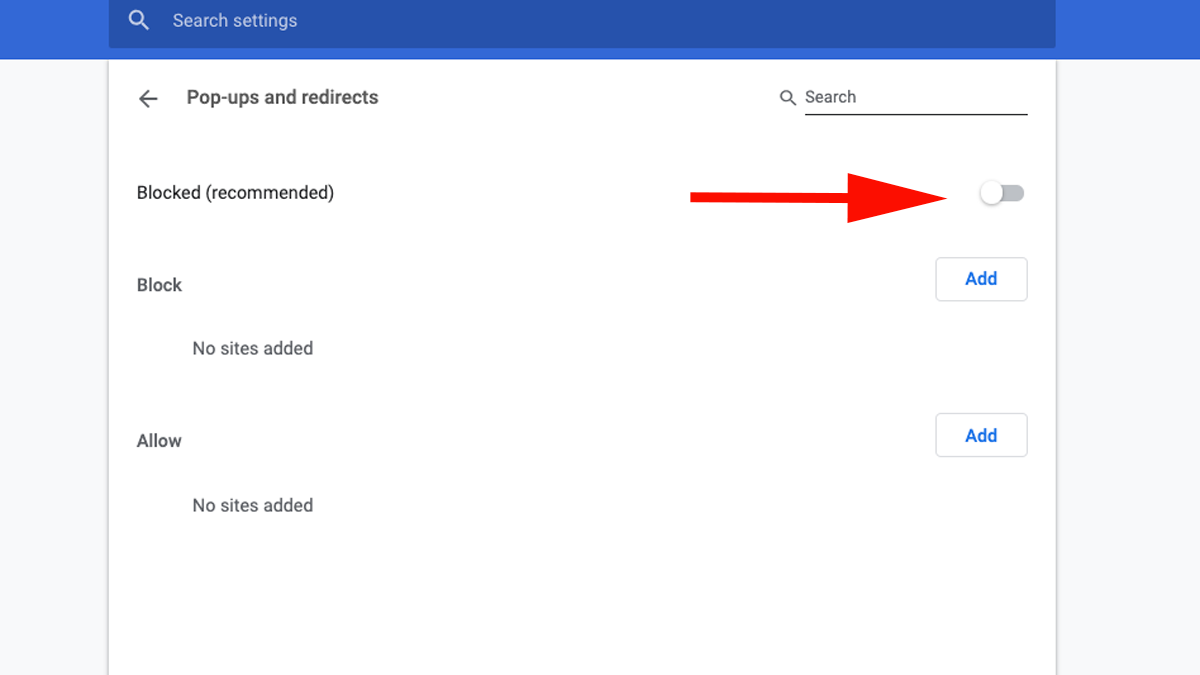
Ad Blocking in Chrome: A Comprehensive Guide to Enhanced Browsing
In today’s digital landscape, online advertising has become ubiquitous. While ads support many websites and content creators, they can also be intrusive, slow down browsing speeds, and even pose security risks. This has led to the increasing popularity of ad blocking in Chrome and other browsers. This article provides a comprehensive overview of ad blocking in Chrome, exploring its benefits, different methods of implementation, ethical considerations, and the future of online advertising.
The Rise of Ad Blocking
The proliferation of online advertising has reached a point where many users find it overwhelming. Pop-up ads, autoplay videos, and intrusive banner ads can significantly detract from the browsing experience. Furthermore, some ads contain malware or track user activity without consent, raising privacy concerns. As a result, ad blocking in Chrome has become a mainstream practice, with millions of users actively blocking ads to reclaim control over their online experience.
Benefits of Using an Ad Blocker in Chrome
There are several compelling reasons why users choose to implement ad blocking in Chrome:
- Improved Browsing Speed: Ads consume bandwidth and processing power, slowing down page load times. By blocking ads, users can experience significantly faster browsing speeds.
- Enhanced Security: Malicious ads, known as malvertising, can infect devices with malware. Ad blocking in Chrome reduces the risk of exposure to these threats.
- Reduced Data Consumption: Ads consume data, which can be a concern for users with limited data plans, especially on mobile devices.
- Cleaner Browsing Experience: Blocking ads eliminates clutter and distractions, allowing users to focus on the content they want to see.
- Increased Privacy: Many ads track user activity and collect personal data. Ad blocking in Chrome can help protect user privacy by preventing this tracking.
Methods of Implementing Ad Blocking in Chrome
There are several ways to implement ad blocking in Chrome, each with its own advantages and disadvantages:
Ad Blocking Extensions
The most popular method is using browser extensions. Chrome extensions like AdBlock, Adblock Plus, and uBlock Origin are widely used and offer a range of features, including:
- Blocking ads on all websites: These extensions block most types of ads, including banner ads, pop-ups, and video ads.
- Customizable filter lists: Users can customize the filter lists used by the extension to block specific types of ads or websites.
- Whitelisting websites: Users can whitelist websites they want to support by disabling ad blocking on those sites.
- Easy installation and use: These extensions are easy to install and use, making them accessible to a wide range of users.
To install an ad blocking extension, simply visit the Chrome Web Store, search for the extension, and click “Add to Chrome.” Once installed, the extension will automatically block ads as you browse the web.
Built-in Ad Blocking Features in Chrome
Chrome also has built-in ad blocking features, although they are less comprehensive than those offered by dedicated ad blocking extensions. Chrome’s built-in ad blocker focuses on blocking ads that are deemed intrusive or annoying, such as pop-up ads and autoplay videos with sound. To enable Chrome’s built-in ad blocker:
- Open Chrome settings.
- Click on “Privacy and security.”
- Click on “Site settings.”
- Scroll down to “Content” and click on “Ads.”
- Toggle the switch to block intrusive ads.
Using a VPN with Ad Blocking
Some Virtual Private Networks (VPNs) offer built-in ad blocking features. These VPNs block ads at the network level, preventing them from ever reaching your browser. This can be a more effective method of ad blocking in Chrome than using browser extensions, as it blocks ads across all devices connected to the VPN. However, using a VPN can also slow down your internet speed.
Ethical Considerations of Ad Blocking
While ad blocking in Chrome offers many benefits, it also raises ethical concerns. Many websites rely on advertising revenue to support their operations and provide free content. By blocking ads, users are effectively depriving these websites of revenue, which could lead to them being forced to shut down or charge users for access. [See also: The Impact of Ad Blocking on Online Publishers]
To address these concerns, some ad blocking extensions allow users to whitelist websites they want to support. This allows users to block ads on websites they don’t want to support while still supporting the websites they value. Another approach is to subscribe to premium services that offer ad-free content.
The Future of Online Advertising
The rise of ad blocking in Chrome has forced the online advertising industry to rethink its approach. Many advertisers are now focusing on creating less intrusive and more relevant ads that users are less likely to block. This includes:
- Native advertising: Ads that blend in with the surrounding content and don’t look like traditional ads.
- Contextual advertising: Ads that are relevant to the content of the website or the user’s interests.
- Value-added advertising: Ads that offer users something of value, such as a discount or a free gift.
The future of online advertising is likely to be more personalized and less intrusive, with a greater focus on providing value to users. As ad blocking in Chrome continues to grow in popularity, advertisers will need to adapt to this changing landscape to remain effective.
Choosing the Right Ad Blocker for Chrome
With numerous ad blocking in Chrome options available, selecting the right one can feel overwhelming. Consider these factors:
- Effectiveness: How well does the ad blocker block various types of ads? Read reviews and compare performance.
- Customization: Can you customize filter lists and whitelist specific websites?
- Resource Usage: Does the ad blocker consume significant system resources, potentially slowing down your browsing?
- Privacy: Does the ad blocker respect your privacy and avoid tracking your browsing activity?
- User Reviews: What are other users saying about the ad blocker’s performance and reliability?
Ad Blocking and Mobile Chrome
Ad blocking in Chrome isn’t limited to desktop browsing. Mobile browsing also benefits significantly from ad blockers. Ads on mobile devices can consume data and battery life, making ad blocking even more crucial for mobile users. Many of the same ad blocking extensions available for desktop Chrome are also available for mobile Chrome on Android. For iOS devices, the options might be slightly different due to Apple’s restrictions, but content blockers available through the App Store can provide similar functionality.
Troubleshooting Common Ad Blocking Issues
Sometimes, ad blocking in Chrome can cause issues with website functionality. For example, some websites may detect that you are using an ad blocker and prevent you from accessing content. In these cases, you may need to temporarily disable the ad blocker for that website or add it to your whitelist. Another common issue is that some ads may still get through, even with an ad blocker enabled. This may be due to the ad being served through a different domain or using a technique to circumvent the ad blocker. In these cases, you can try updating your filter lists or using a different ad blocker.
The Ongoing Evolution of Ad Blocking
The battle between ad blockers and advertisers is constantly evolving. Advertisers are always developing new techniques to circumvent ad blockers, and ad blocker developers are constantly updating their software to block these new techniques. This cat-and-mouse game is likely to continue for the foreseeable future. As the online advertising landscape changes, ad blocking in Chrome will continue to adapt and evolve to meet the needs of users.
Conclusion
Ad blocking in Chrome has become an essential tool for many internet users, providing benefits such as improved browsing speed, enhanced security, reduced data consumption, and a cleaner browsing experience. While ethical considerations exist, the demand for ad blocking reflects a growing frustration with intrusive and disruptive online advertising. As the online advertising landscape evolves, ad blocking in Chrome will likely remain a popular and effective way to control your online experience. By understanding the different methods of implementation, the ethical implications, and the future trends, users can make informed decisions about whether and how to use ad blocking in Chrome.

